In a one newspaper town, the Courier Mail will never miss an opportunity to slam the Palaszczuk Labor government, even if they have to distort or mislead, while generally neglecting good news.
So we’ve had another front page headline:

In a one newspaper town, the Courier Mail will never miss an opportunity to slam the Palaszczuk Labor government, even if they have to distort or mislead, while generally neglecting good news.
So we’ve had another front page headline:

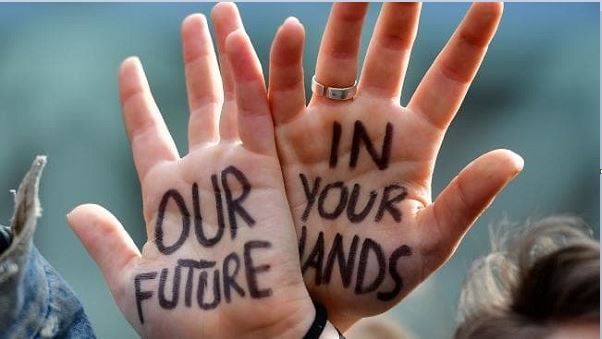
Greta Thunberg, the girl who can’t quit, was asked to talk to the billionaire entrepreneurs in Davos:
She also said:
Continue reading Climate emergency – the next (political) step
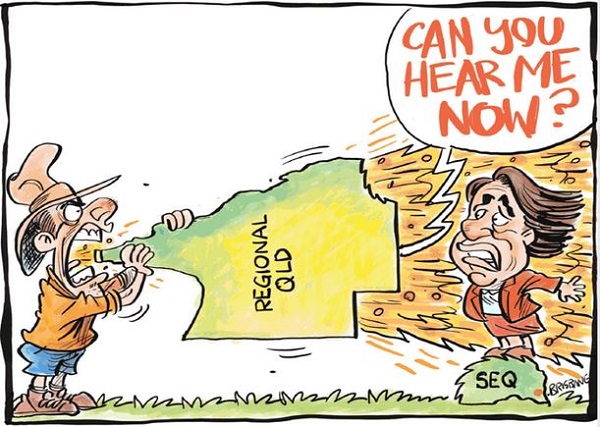
I pinched that cartoon from the Townsville Bulletin from Facebook, where it was doing the rounds. I think it’s tragic rather than funny, but may go some way to explain why Labor, in Queensland and federally, is over-reacting to the ‘message’ that was sent on Adani, and the prospect of jobs flowing from the resources industry as against climate change and saving the planet. Both Queensland and federal Labor appear to be caving in to coal interests, and both appear to be clueless about the urgency of the climate emergency. Continue reading Labor needs to rethink the climate emergency
Thailand is happy about being the least miserable country in the world in the in the Bloomberg Misery Index, which is an economic indicator devised by Arthur Okun, and is derived by simply adding the forecasts of unemployment and inflation for the following year.
However, Thailand’s performance in the index is due to the Thai government’s unique way of tallying unemployment. More noteworthy are the performances of Switzerland, Japan and Singapore. For what it’s worth, here are the 10 least miserable: Continue reading Weekly salon 4/5
The Grattan Institute found that providing tax cuts in the never-never while reducing government expenditure from 24.9% of GDP in 2018-19 to 23.6% during the next decade will necessitate cutting existing programs by more than A$40 billion a year in 2029-30. That should have been the story of the week, but somehow it wasn’t.
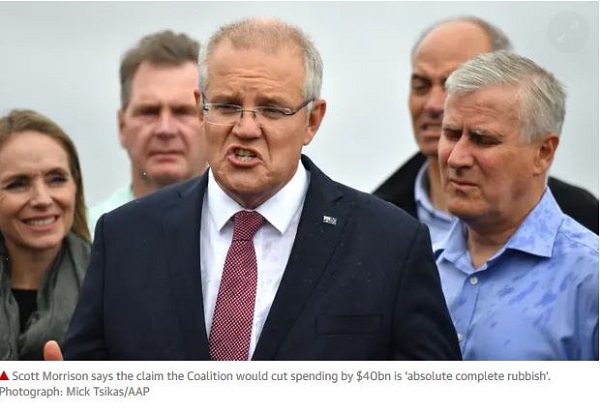
That’s Scott Morrison saying the claim is “absolute complete rubbish”. I’ll come back to that. Worse was to come. By the end of the week Bill Shorten was accusing the Liberal Party of running a “low-rent, American-style fake news” campaign on a “ridiculous death tax scare”. Continue reading Election 2019: follies 1
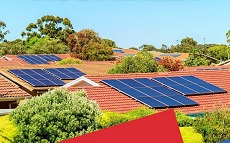 While Labor’s 2019 Climate Acton Plan has been completely rewritten compared to the plan they took to the 2016 election the target of 45% emissions reductions (from 2005) by 2030 remains the same. I can’t recall whether they espoused zero emissions by 2050, as they do now, I think it may have been 90%. Their overall strategy is, I think, based on six considerations.
While Labor’s 2019 Climate Acton Plan has been completely rewritten compared to the plan they took to the 2016 election the target of 45% emissions reductions (from 2005) by 2030 remains the same. I can’t recall whether they espoused zero emissions by 2050, as they do now, I think it may have been 90%. Their overall strategy is, I think, based on six considerations.
Firstly, Labor acknowledges the cost of doing nothing:
Secondly, they say:
Continue reading Labor’s climate action plan 2019 – a “dog’s breakfast?”
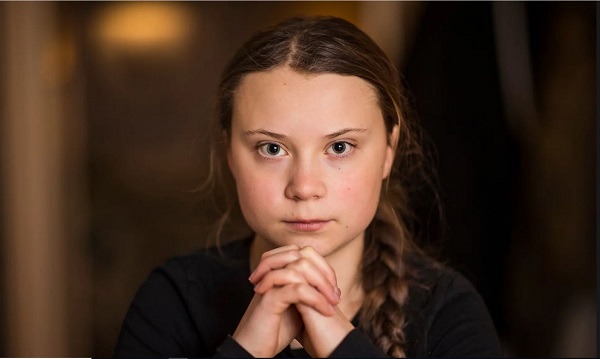
Photo and story from The Guardian.
She was asked to talk to the billionaire entrepreneurs in Davos.
Continue reading What would give hope to Greta Thunberg, the girl who can’t quit?
According to Sharon Kelly at Desmog, that is a quote from a speech in 1965:
The speaker was concerned that by the year 2000 the heat balance would be so modified as to possibly cause marked changes in the climate. Continue reading Climate clippings 231
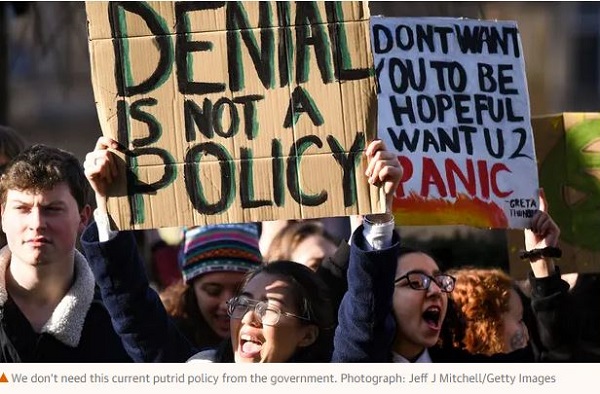
After a summer of record heat and wildfires, the Australian people along with business and industry are looking for concrete, responsible climate policies.
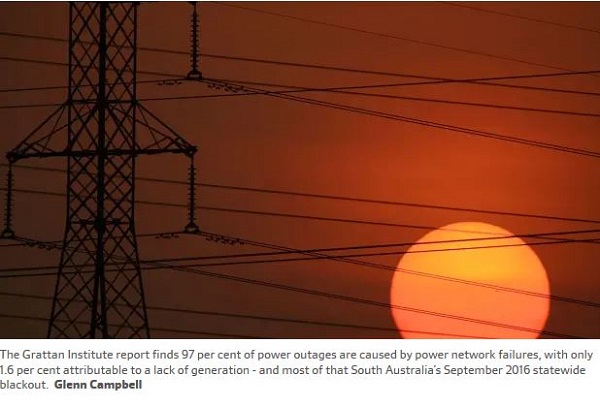
A myth has been vigorously stoked by Malcolm Turnbull and Josh Frydenberg that an irrational frolic with renewables has made the electricity grid unreliable, as demonstrated conclusively by the state blackout in South Australia in 2016. This is now being taken into actual policy by Angus Taylor and Scott Morrison with “big stick” penalties and government intervention to produce “fair dinkum 24/7” power.
This myth has now been thoroughly debunked by a Grattan Institute report Keep calm and carry on: Managing electricity reliability. Blaming renewables for reliability issues is “wrong and dangerous”. Continue reading Blackouts are not increasing, keep calm and carry on!
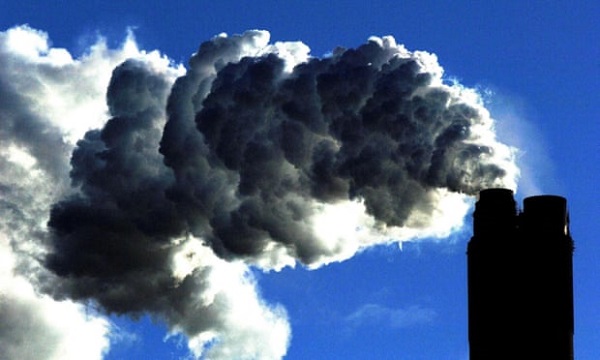
It was a strange decision to hold the UNFCCC’s Conference of Parties (COP24) in Katowice, Poland, deep in Poland’s coal mining territory. The main purpose of the conference is to finalize the implementation guidelines of the Paris Agreement.
The conference also received the special report on achieving a 1.5°C global average temperature rise prepared on request by the IPCC. While I had some reservations about the whole exercise, the report a strong wake up call on the need for more urgent cuts. Fossil fuels had to be wound back rapidly. This from Dr. Joeri Rogelj, of the International Institute for Applied Systems Analysis in Austria:
Last week school children of Australia marked the card of the Morrison government on climate change and gave it a fail. Was this too harsh?
On Q&A last Monday a Melbourne boy called Marco asked the panel:
“A few days ago thousands of students from around Australia, like me, went on strike from school to demand that the Government acts on climate change.
“When will the Government start to care about my future and children around the world by acting on climate change and create a strong climate policy?”